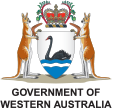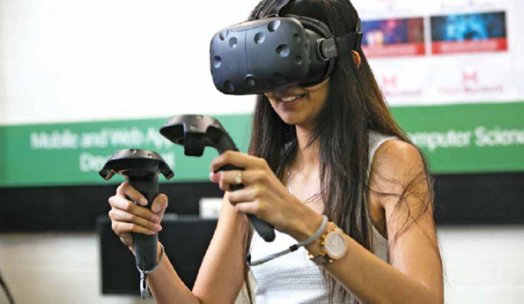Murdoch University has been awarded $64,000 in project funding by the Peel Development Commission to provide the latest equipment for secondary school pupils interested in science and technology.
The grant will fund a project which aims to increase the Science, Technology, Engineering and Mathematics (STEM) capacity of staff and students at Byford Secondary College and Halls Head College.
“The region needs many more students studying STEM subjects in years 11 and 12,” said Murdoch University Provost Professor Andrew Taggart.
Funding will equip future students with the skills required to fuel the regions STEM-driven economic growth.
The Peel Development Commission funding will pay for equipment such as 3D printers, virtual reality goggles and robotics items.
“The equipment will enhance STEM teaching in the schools, capturing the imagination of the students and inspiring their interest in STEM subjects,” said Professor Taggart.
Fundamentally, this equipment will offer application of knowledge and theory presented.
Robotics equipment will be of competition standard and enable students to enter into robotics and technology challenges throughout the State.
“There is a real need for STEM skilled students and graduates for our future workforce in the Peel region. They will support and gain employment and jobs in areas such as the “Food and Innovation” – focus areas we are developing in the Peel region and the cornerstones of the 2050 Peel Regional Blueprint,” Peel Development Commission Chief Executive Officer Andrew Ward said.
“It will provide tangible, specific, measurable, achievable, realistic, and a timely support base for interested and aspirational students as well as for the academic university bound STEM students.”
Murdoch University has a strong STEM engagement and University Outreach program and lecturers will support the development of teachers and students.
The University also has a strong track record of STEM support in other Peel schools, including Coodanup College, John Tonkin College and Serpentine Jarrahdale Grammar School.
This project will track the number of students choosing STEM related electives in lower school and STEM related subjects in Years 11 and 12, as well as measure participation in National Science Week activities for students in each school.
“According to Deloitte Access Technologies, 2015, the contribution of digital technologies to the Australian economy was $79 billion in 2013 – 2014, compared to $50 billion in 2011 and is expected to continue growing in a globally connected digital world,” added Professor Taggart.
“STEM innovations are dramatically changing industries and occupations across the economy, including the Peel region.”
“By improving data literacy and STEM related skills in our high schools, we are effectively improving higher order thinking skills through analysis and evaluation and ability for students of the Peel to pathway into the STEM related careers,” he said.
This article was first published in the Peel Magazine, Autumn/Winter 2017 – vol 2.4 – to read and download the full magazine, click here.



